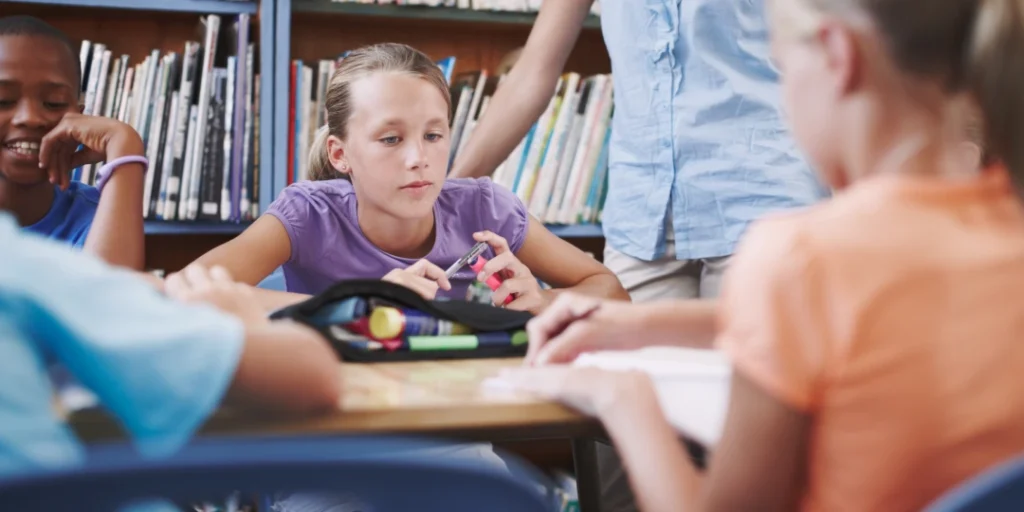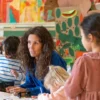![Mt.Juliet Day School: 5 Powerful Ways Playtime Sparks Lifelong Learning Introduction – Play as the Cornerstone of Foundational Education At Mt. Juliet Day School, the principle that play forms the bedrock of education is not a philosophical abstraction—it is a […]](https://dayschools.org/mtjuliet/wp-content/uploads/sites/6/2025/05/Day-School.webp)
Table of Contents
Introduction – Play as the Cornerstone of Foundational Education
At Mt. Juliet Day School, the principle that play forms the bedrock of education is not a philosophical abstraction—it is a lived reality evident in every classroom, hallway, and playground. The moment a child enters the environment, they are enveloped by a culture of curiosity, creativity, and discovery. Brightly colored learning centers, thoughtfully curated materials, and intentionally structured schedules signal that this is a place where exploration is not just allowed but celebrated. This ethos redefines learning from a task-based experience into a joyful journey of engagement and growth.
In today’s world, where change is constant and complexity is the norm, children must develop more than rote knowledge. They must learn to think critically, adapt to new situations with agility, and relate to others with empathy. Play is the only domain in early childhood that fosters all of these competencies simultaneously. At Mt. Juliet, play is the crucible in which essential life skills are forged—creativity in the art corner, negotiation in the block area, resilience on the climbing frame. The school’s educational approach is rooted in the understanding that well-rounded, capable learners are those who have had the space and support to grow through rich, hands-on experiences.
What sets Mt. Juliet Day School apart is the intentionality behind every playful moment. Playtime is carefully observed and gently guided by educators who understand child development deeply. They know when to step in with a question that nudges a child’s thinking and when to step back and let discovery unfold. A simple activity like water play can evolve into a lesson on volume and measurement, while pretend play becomes a gateway to understanding roles, responsibilities, and storytelling. Teachers at Mt. Juliet are not merely supervisors—they are skilled facilitators who turn fleeting moments into lasting knowledge.
The Neuroscience of Play – Fueling Brain Development
The human brain undergoes its most significant development during the early years of life, and play is the engine that powers this growth. At Mt. Juliet Day School, the educational philosophy is grounded in the latest neuroscience, which demonstrates that play activates and strengthens the neural circuits responsible for memory, executive function, emotional regulation, and language acquisition. The school’s daily routines are meticulously crafted to align with these biological imperatives, ensuring that children engage in activities that optimize brain development.
Every sensory-rich experience—from manipulating kinetic sand to balancing on a beam—stimulates different regions of the brain. These seemingly simple tasks build complex neural connections by integrating motor skills with problem-solving and spatial awareness. When children are immersed in open-ended play, their brains are engaged in a symphony of activity: the prefrontal cortex plans and makes decisions, the hippocampus records memories, and the amygdala helps interpret emotions. At Mt. Juliet Day School, these dynamic interactions happen continuously, as play is infused across all learning modalities.
As these neural networks strengthen, children gain both mental flexibility and emotional stability. The ability to focus, plan, delay gratification, and recover from setbacks is built into the very fabric of the play experiences at Mt. Juliet. Over time, students develop what researchers call “cognitive resilience”—the capacity to adapt to new challenges with confidence and creativity. By grounding its pedagogy in brain science, Mt. Juliet Day School ensures that its students are not only gaining knowledge but also building the neurological infrastructure for lifelong learning and success.

Social Growth through Cooperative and Parallel Play
Social development is not something children acquire through instruction alone—it evolves through lived experience. At Mt. Juliet Day School, play provides the essential terrain for this evolution. Within the fluid, unstructured format of play, children encounter real social dilemmas, practice interaction, and begin to internalize the subtleties of human connection. The school intentionally uses both cooperative and parallel play as vehicles for this foundational growth, recognizing that each type nurtures social skills in distinct but complementary ways.
Cooperative play introduces the complexities of teamwork and shared purpose. In constructing a block city or acting out a family scenario, children must negotiate roles, set collective goals, and manage disagreements. These moments provide fertile ground for leadership, empathy, and conflict resolution. One child may emerge as a guide, organizing materials and giving direction, while another may support with quiet diligence—both roles vital and valued. In such settings, students learn that collaboration requires both assertiveness and flexibility.
Teachers at Mt. Juliet Day School are highly attuned to the nuances of these interactions. They provide subtle, timely guidance—modeling respectful communication, redirecting conflict with compassion, and posing reflective questions that deepen understanding. Their goal is to equip every child not just with academic tools but with the social fluency to engage, listen, compromise, and lead. This foundation of social-emotional awareness, laid through the everyday act of play, becomes one of the most enduring assets children carry into adolescence and adulthood.
Language Enrichment through Dialogic and Dramatic Play
Language acquisition in young children is most potent when it is embedded within meaningful, dynamic experiences. At Mt. Juliet Day School, language development is seamlessly woven into daily life through dialogic and dramatic play—two of the most effective methods for fostering verbal expression, listening skills, and narrative understanding. In these play-rich contexts, children are not just speaking—they are thinking, negotiating, storytelling, and connecting.
Dramatic play in particular serves as a vibrant incubator for vocabulary expansion and syntactic fluency. When a child becomes a veterinarian, teacher, or grocery store clerk, they naturally reach for specific, contextual language. They sequence events (“First the patient needs a check-up”), label actions and objects (“This stethoscope is cold”), and adapt tone to suit character roles. These exchanges aren’t rehearsed—they’re emergent and authentic, which makes the learning deeply embedded and personally relevant.
Dialogic reading further enriches this process. Unlike traditional storytime where an adult simply reads to a passive group, dialogic reading invites children to become active participants. Educators at Mt. Juliet Day School engages students in open-ended questions, prompt predictions, and encourage personal reflections tied to characters and themes. This method strengthens comprehension, builds inferencing skills, and instills a love of language through mutual engagement.
Language, in these settings, becomes more than a subject—it becomes a living tool for expression, problem-solving, and emotional regulation. Mt. Juliet Day School’s emphasis on interactive language play ensures that students aren’t just acquiring words—they’re learning how to use language thoughtfully and powerfully. Whether explaining a plan, narrating a story, or mediating a disagreement, students are equipped to speak with clarity, creativity, and confidence.
Emotional Intelligence – Learning Through Risk and Reflection
Emotional intelligence begins forming in the early years, not through lectures on feelings but through the authentic, often unpredictable experiences of play. Mt. Juliet Day School understands that emotional growth is as vital as cognitive development, and it nurtures this growth with care and intentionality. Through daily play, students face challenges that mirror real-life struggles and successes—giving them a safe, supported space to develop the tools of self-awareness, empathy, and emotional regulation.
When children build elaborate structures only to see them fall, or attempt to join a peer group and face rejection, they are navigating formative emotional terrain. These moments provide invaluable opportunities to practice resilience. Rather than shielding students from discomfort, educators at Mt. Juliet Day School frames it as part of the learning process. Teachers offer language to describe feelings, model constructive responses, and help children reflect on what they might try differently next time. This scaffolding transforms frustration into growth.
This process builds a rich internal library of emotional experiences. Mt. Juliet Day School students learn to name their feelings, empathize with peers, manage impulses, and recover from setbacks—all within the supportive framework of purposeful play. As emotional intelligence continues to emerge as a key predictor of personal and professional success, this early emphasis on emotional literacy becomes one of the most strategic elements of Mt. Juliet Day School’s educational model. The result is not only emotionally competent students but empathetic, thoughtful individuals prepared to navigate a complex world.

Enhancing Cognitive Skills through Strategic Play
Cognitive development in early childhood is not a passive process—it thrives when children are actively engaged in thinking, planning, and problem-solving. At Mt. Juliet Day School, strategic play is embedded throughout the day to stimulate these cognitive processes in ways that are both effective and joyful. The school’s approach to play is not random or recreational alone; it is carefully designed to sharpen key mental faculties such as reasoning, categorization, memory, and executive function.
To maintain cognitive engagement, Mt. Juliet Day School educators rotate materials and challenges regularly. A familiar space—like a construction corner—may one week emphasize balancing symmetrical structures and the next highlight stability under weight, prompting students to shift their thinking and adapt their techniques. This variability not only keeps play fresh but also fosters mental flexibility, a key predictor of academic and life success. It challenges children to approach familiar tools with new perspectives and strategies.
Over time, children begin to connect these cognitive skills across disciplines. Math is no longer confined to counting blocks; it becomes integral to spatial reasoning and architectural design. Science is not just a subject but a way of thinking applied during water play or sensory experimentation. Even storytelling evolves into structured, logical narratives with cause-and-effect relationships. At Mt. Juliet Day School, strategic play becomes the foundation of intellectual development, preparing students to think critically and creatively in all aspects of life.
Movement-Based Learning – The Role of Physical Play in Brain-Body Integration
Physical movement is often misunderstood as a break from learning, but at Mt. Juliet Day School, it is seen as an essential mode of learning itself. The link between motor activity and cognitive function is well established in neurological research: movement supports emotional regulation, enhances focus, and activates both hemispheres of the brain. At Mt. Juliet Day School, the curriculum intentionally integrates gross and fine motor activities to cultivate this critical brain-body synergy.
Simultaneously, fine motor play sharpens precision and coordination. Activities like bead threading, cutting shapes, and drawing with various instruments build strength and control in small muscle groups while also reinforcing visual-motor integration. These skills translate directly to classroom tasks such as writing, manipulating objects, and even using digital tools. The developmental gains from such play extend well into academic competencies that demand focus, patience, and coordination.
Mt. Juliet Day School also uses movement as a kinesthetic learning strategy. Children might count while hopping, trace letters with their whole bodies, or act out scientific processes through role-play and gesture. These embodied experiences deepen conceptual understanding and increase retention. By treating movement as a conduit for cognitive and emotional learning, Mt. Juliet Day School ensures that its students are not only physically agile but intellectually and neurologically balanced—ready to engage with the world holistically.
The Educator’s Role in Facilitating Purposeful Play
In a truly effective play-based learning environment, educators do far more than supervise—they orchestrate. At Mt. Juliet Day School, teachers are trained to serve as intentional facilitators who use observation, timing, and insight to transform play into powerful educational moments. Their role is akin to that of a conductor, subtly guiding the rhythm and direction of the experience without overshadowing the child’s autonomy.
The foundation of this facilitation is close observation. Teachers at Mt. Juliet Day School is highly attuned to individual developmental stages, learning preferences, and moment-to-moment needs. When a child is deeply engaged in an activity—such as building a bridge, painting a mural, or organizing pretend groceries—the teacher assesses not only the product but the process: the decisions being made, the strategies being tested, and the questions being asked. From these insights, opportunities for deeper learning are uncovered.
Crucially, this facilitation walks a careful line between guidance and independence. Children are empowered to lead their own learning journeys, but they are never left adrift. The educator’s touch is light yet impactful, ensuring that play remains spontaneous while also being intellectually rich. This requires a rare blend of developmental expertise, emotional intelligence, and pedagogical creativity. At Mt. Juliet Day School, these qualities are cultivated in every member of the teaching staff, ensuring that purposeful play is not left to chance—it is expertly curated, moment by moment.

Strengthening School-Home Learning Continuity through Play
At Mt. Juliet Day School, education is viewed as a collaborative ecosystem—one that thrives best when school and home work in tandem. Recognizing that a child’s development doesn’t pause outside of school hours, the school places strong emphasis on forging intentional partnerships with families. These alliances are rooted in a shared belief: that play, when understood and supported across environments, becomes a consistent and powerful medium for lifelong learning.
Parents are not left to guesswork when it comes to extending learning at home. Mt. Juliet Day School provides comprehensive guidance on how to foster meaningful play experiences beyond the classroom. Weekly newsletters, developmental tip sheets, and tailored activity suggestions offer families the tools they need to create enriching environments. Whether it’s a suggestion to build a counting game into bath time or transform the living room into a storytelling theater, these home-based strategies reinforce the educational themes explored in school.
In addition to resources, Mt. Juliet Day School offers workshops and events designed to deepen parental understanding of play-based learning. These sessions explore topics such as child development, emotional coaching, and creative problem-solving through play. Parents leave not only with actionable ideas but with a renewed appreciation for their role as co-educators. They become more confident in recognizing learning moments in everyday routines—from cooking and gardening to sidewalk chalk and imaginative role-play.
This seamless continuity between school and home creates a feedback loop that accelerates cognitive and emotional growth. When children encounter consistent expectations, language, and values across environments, their neural pathways strengthen and their confidence deepens. They begin to see learning not as a place or time, but as a way of engaging with the world. In this united approach, Mt. Juliet Day School ensures that every child benefits from a learning journey that is coherent, holistic, and lovingly reinforced by both educators and caregivers.
Conclusion – Building Futures One Playful Experience at a Time
Play is not the prelude to real learning—it is its enduring architecture. At Mt. Juliet Day School, this understanding informs every decision, from classroom design to daily scheduling, curriculum design to parent communication. Play is not a filler activity but a strategic, intentional, and deeply respected method of nurturing the whole child. In every corner of the school, the sounds of laughter, dialogue, experimentation, and discovery form the heartbeat of an education that prioritizes joy as a conduit to growth.
Within this vibrant learning environment, students are building far more than towers of blocks or make-believe worlds. They are building foundational competencies that will serve them throughout life: critical thinking, empathy, emotional intelligence, linguistic agility, and creative innovation. These traits, cultivated early through developmentally rich play, are increasingly recognized as the hallmarks of successful, fulfilled individuals in the modern world.
The school’s mission transcends academic preparation. It is about equipping children with the tools to live wisely, compassionately, and resiliently. Every activity—whether it’s constructing a miniature town, dramatizing a story, or solving a hands-on problem—is part of a greater narrative in which children are the authors of their own development. They are given the freedom to explore, the structure to feel safe, and the guidance to discover who they are and what they can do.
In a world that often prizes outcomes over process, Mt. Juliet Day School boldly reclaims the importance of wonder, curiosity, and intrinsic motivation. Its model proves that when children learn through play, they are not simply preparing for life—they are living it, fully and authentically. And through each playful moment, they are building a future rich in possibility, purpose, and promise.





